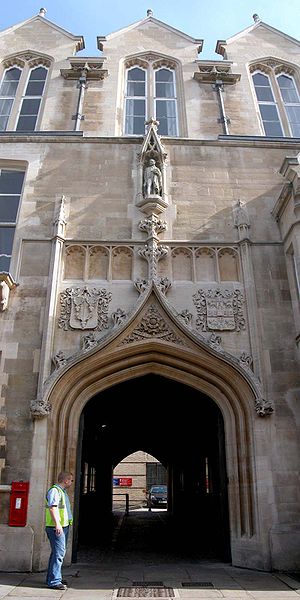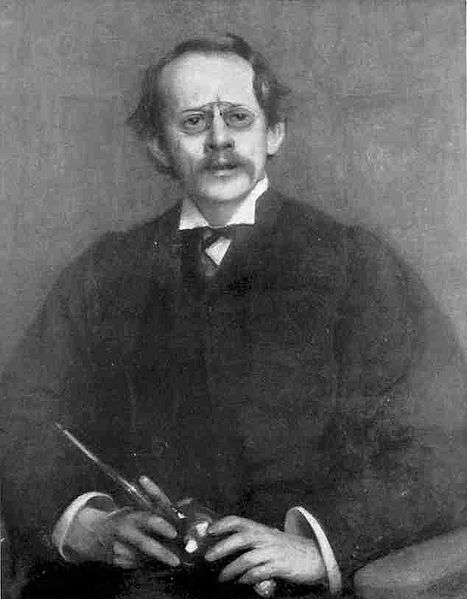The Post Prandial Proceedings of the Cavendish Society
Interview with
Jeff - The post-prandial proceedings of the Cavendish Physical Society were a collection of after dinner songs that the research students sang at the annual Cavendish dinner every year. Some of the students were very good singers so they sang favourite songs of theirs. Some of them were very good aspiring lyricists and they re-wrote the words to some of the songs to reflect the events and personalities of the Cavendish Laboratory. They just told stories in their songs about what was going on in the lab.
 Ben - This was a student thing. Was this just a lot of fun by the students and researchers or did some of the more eminent people get involved as well?
Ben - This was a student thing. Was this just a lot of fun by the students and researchers or did some of the more eminent people get involved as well?
Jeff - At the annual dinner the professor would be there, the head of the laboratory. There would be guests who would have been former students of the laboratory who had gone on to jobs and scientific eminence elsewhere. They'd be invited back and that would create a very nice sense of tradition and continuity with the past with the current students. The former laboratory members could be held up as role models for them as to what they might aspire to.
Ben - A very good opportunity to meet some of the era-defining scientists of the time and, at the same time, have quite a lot of fun.
Jeff - Absolutely. Could you imagine being in a dinner where you would see your head of department and a well-known Nobel prize winner standing on their chairs, linked arms singing Auld Lang Syne at the top of their voices.
Ben - This sounds like a very casual thing. It happened at a yearly dinner but how do we know about it? This sort of thing usually would be a bit of an inside joke that would pass by unnoticed.
Jeff - This was a very serious informal tradition. The students were so pleased with their own songs that they kept them. In 1904 they published them in a pamphlet and that was republished in six editions up to 1926. That's how we know about these songs. We know something from diaries and letters and so on about how they were actually performed.
Ben - Could you give me an example of the sorts of lyrics that they were coming up with?
 Jeff - Yeah. A.A. Robb, the mathematical physicist wrote this one about 1905-06. It's to a cod Irish jig called Father O'Flynn. I like this one because I play the fiddle and I play Irish jigs quite a lot. Imagine an Irish jig rhythm. It's:
Jeff - Yeah. A.A. Robb, the mathematical physicist wrote this one about 1905-06. It's to a cod Irish jig called Father O'Flynn. I like this one because I play the fiddle and I play Irish jigs quite a lot. Imagine an Irish jig rhythm. It's:
Of dons we can offer a charming variety
All the big pots of the Royal Society
Still there is no one of more notoriety
Than our professor, the pride of us all.
Here's to the health of professor JJ
May he hunt lions for many a day
And take observations and work out equations
And find the relations which forces obey.
When the professor has solved a new riddle
Or found a fresh fact he's as fit as a fiddle.
He goes to the tea room and sits in the middle
And jokes about everything under the sun
Then if you try to look grey at his jest
You'll burst off the buttons that fasten your vest
For when he starts chaffing though tea you'll be quaffing
you cannot help laughing along with the rest
Ben - This evening, we've seen some of them performed by the HBS choir, do you think this might be the first time they've been performed in, maybe, 100 years?
Jeff - As far as I know, this is the first time that these, the three songs we've heard tonight, have been performed since probably the 1930s.
Ben - So really, it's quite an historic event that we've been involved in?
Jeff - Absolutely! Historians of science these days are really interested in re-creating historical experiments, what we've heard tonight is the recreation of historical songs, and I'm, absolutely thrilled.










Comments
Add a comment